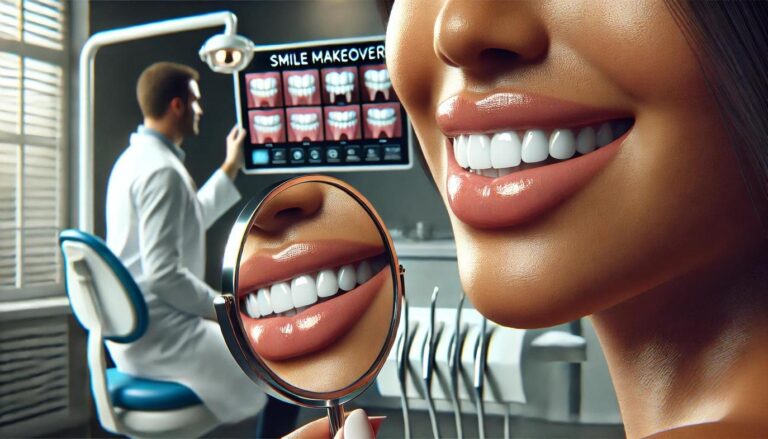Hearing health is a vital part of our overall wellness. Our hearing impacts our communication, cognitive function, balance, and quality of life. Thus, prioritizing our hearing health not only safeguards our auditory function but also reverberates through various aspects of our lives, creating profound effects that often go unnoticed.
Protecting your ears from noise, scheduling regular hearing check-ups, and addressing hearing loss early will improve your well-being and avoid many of the negative impacts that hearing loss can have on your health. Integrating hearing care into your routine will mean improving your mental sharpness, setting your long-term health up for success, and creating better social connections.
Adapting with Purpose: Strategies and Solutions for Optimal Hearing Health
Too often, people find it easy to ignore their hearing health. Humans possess an incredible ability to adapt. When faced with hearing loss, individuals often develop creative strategies to navigate conversations and grasp the context of discussions.
- They might rely on nonverbal communication through visual cues, such as body language and facial expressions, to fill in the gaps.
- Others may intentionally choose quieter settings to reduce background noise, or they might adjust their social habits to engage with friends and family in more manageable environments.
- Some individuals organize social gatherings at restaurants during off-peak hours to minimize distractions and ensure clearer communication, enhancing their overall enjoyment of shared experiences.
However, these coping techniques are not a substitute for treatments such as hearing aids and assistive devices. For those with existing hearing loss, prioritizing regular hearing tests is crucial for effective auditory care. These assessments help identify the degree of hearing impairment and guide appropriate treatment options.
Professional hearing tests and assistive devices play a crucial role in managing auditory health, allowing individuals to identify specific needs and receive tailored solutions. Utilizing assistive devices, such as hearing aids or specialized listening tools, can significantly enhance communication and overall quality of life. Proactively managing hearing health empowers individuals to enrich their daily interactions and elevate their overall quality of life, transforming it into an essential component of their holistic wellness journey.

How to Diagnose and Treat Hearing Loss
Getting your hearing tested by an audiologist is a straightforward process that will identify issues with your hearing health and help you move on to treatment. If you notice that you have difficulty hearing conversations, a ringing in your ears, or that you frequently increase the volume on your media devices, now is the time to book a hearing test with an audiologist.
Scheduling an Appointment
To begin, schedule an appointment with an audiology clinic. Audiology clinics provide hearing tests and treatment. Your hearing test will identify the best course of treatment, potentially including specifications for a hearing aid. Many insurance plans cover hearing tests, so checking your coverage beforehand is helpful.
Types of Hearing Tests
During your visit, the audiologist will conduct a series of tests to assess your hearing ability and identify any issues. These may include:
- Otoscopy: A physical examination of the ear canal and eardrum to check for earwax blockages, infections, or abnormalities.
- Air Conduction Thresholds: This test evaluates how well sound travels through the outer and middle ear to the inner ear by playing tones through headphones at various frequencies and volumes. The pitches used encompass the range of everyday sounds you are likely to hear. The aim of the test is to identify the softest sound levels that a patient is able to hear at each pitch.
- Bone Conduction Thresholds: This test evaluates the type and degree of hearing loss a patient is experiencing by using a bone oscillator behind the patient’s ear. The device tests the inner ear’s response to sound while bypassing the outer and middle ear. As with air conduction thresholds, this test identifies the softest sound a patient can hear at a certain pitch.
- Tympanometry: Measures eardrum movement and checks for fluid buildup or middle ear issues.
Using these hearing tests, an audiologist can identify your hearing needs and program assistive devices to correct your hearing. Hearing aids are programmable to amplify the sounds and frequencies that you struggle with the most.

Tips to Bring Hearing Health into Your Wellness Routine
Protecting your hearing requires proactive care and healthy lifestyle choices. Regular hearing checkups, a balanced diet, noise protection, volume control, and exercise all contribute to long-term auditory health. Integrating these practices into daily life can help preserve auditory function, thwart hearing loss, and support lasting wellness for the future.
1.Schedule Hearing Checkups
Hearing checkups, also referred to as hearing screenings, are rapid pass/fail assessments that determine if you have a hearing loss.
- If you pass a hearing checkup, no further action is required, and you can rest easy knowing your hearing is within a normal range.
- If you fail a screening, an audiologist has identified hearing loss and will need to conduct a full evaluation to determine the type and degree of hearing impairment.
2.Foods That Support Your Hearing Health
According to the American Association of Retired Persons (AARP), medical studies are beginning to show a connection between heart disease and age-related hearing loss. This means that, while you may not be able to reverse hearing loss, a healthier diet that improves heart health may help you avoid or slow the progress of hearing loss.
Eating healthy is a powerful tool in your wellness arsenal for a network of interconnected health issues. Some of the best ways to incorporate a diet with positive benefits for heart health include:
- Prioritizing a heart-healthy diet rich in nutrients.
- Inclusion of a variety of fruits and vegetables, such as:
- Bell peppers
- Carrots
- Cantaloupes
- Dark leafy greens
- Tomatoes
- Citrus fruits
- Incorporating quality protein sources, such as:
- Eggs
- Fish

3.Protect Your Ears with Earplugs
Earplugs are a quick and accessible tool that you can use to protect your hearing when you know that you’re going to be exposed to loud noises.
- Wearing earplugs to a live, in-arena sports game or a concert will protect you from loud noises created by the speakers or by the crowd that can damage your hearing.
4.Keep the Volume Down
The volume of your media devices is a major threat to your hearing health.
- Keeping the volume on your devices to about 60% of the maximum can help you avoid volume levels that could damage your hearing.
- You may also want to limit the time you spend wearing earphones or headphones to a maximum of 60 minutes.
5.Start Exercising
What does exercise have to do with your hearing?
- Hearing loss is the result of small hair cells in your inner ear becoming damaged, and these cells do not recover.
- Increased blood flow can help cells stay healthy, including the cells in your inner ear.
- Even light exercise can help pump more blood to your ears.

Hearing Health: A Cornerstone of Holistic Wellness and Vibrant Living
As we reflect on the crucial role hearing health plays in our overall wellness journey, it’s clear that neglecting this aspect can lead to far-reaching consequences. The impact of hearing loss extends beyond just missed conversations; it can affect cognitive function, emotional well-being, and the quality of our social interactions.
Don’t forget about your hearing health when you’re planning your overall health routine. Integrating comprehensive auditory care into daily wellness routines is vital for protecting hearing health. An intentional focus on hearing care not only strengthens relationships but also sharpens cognitive function, fostering greater mental clarity.
How can being proactive about hearing health improve my life?
Imagine a life where you fully engage in conversations without straining to catch every word—a life enriched by shared laughter and deep discussions. This is attainable when we prioritize our hearing health.
- Scheduling regular hearing checkups with an audiologist is essential for early detection of any issues.
- A proactive mindset enables timely interventions, such as hearing aids or assistive listening devices, which can restore clarity to daily life.
What are the best dietary tips for better hearing?
We can also enhance our auditory well-being through mindful lifestyle choices.
- Adopting a nutrient-rich diet can reinforce the connection between heart health and hearing.
- Incorporating beneficial foods for hearing health, like dark leafy greens, fish, and vibrant fruits, creates a robust foundation for our overall wellness.
- Meanwhile, simple measures, such as using earplugs in loud environments and controlling the volume on our devices, can have a significant effect on long-term auditory function.
How does exercise improve hearing health?
And let’s not forget the power of movement!
- Engaging in regular exercise not only boosts blood circulation but also keeps our inner ear’s delicate hair cells healthier and stronger.
- After all, better blood flow supports the very cells responsible for our ability to hear clearly.

Collective Steps Towards Enhanced Auditory Wellness
In our journey toward enhanced hearing health, it’s essential to remember that no one travels this path alone. We all share the responsibility to prioritize our hearing and support one another in this pursuit.
So, as you move forward, ask yourself,
- “What small changes can I incorporate today to bring hearing health into my routine?”
- “How can I foster deeper connections and a more fulfilling life through better auditory care?”
Embrace hearing health as a vital part of your overall wellness, and witness the profound impact it can have on your life. The journey may be entirely worth it.




